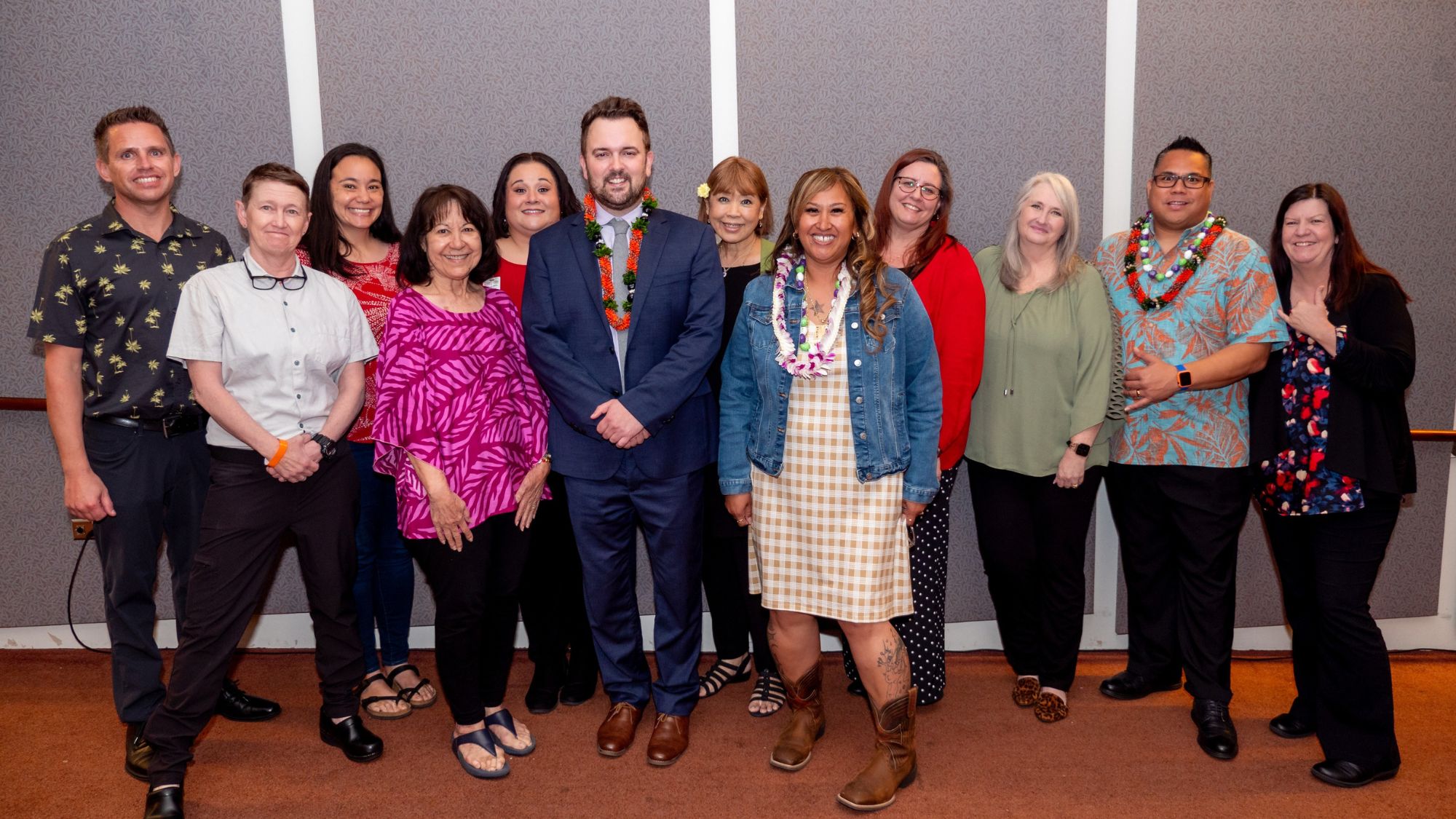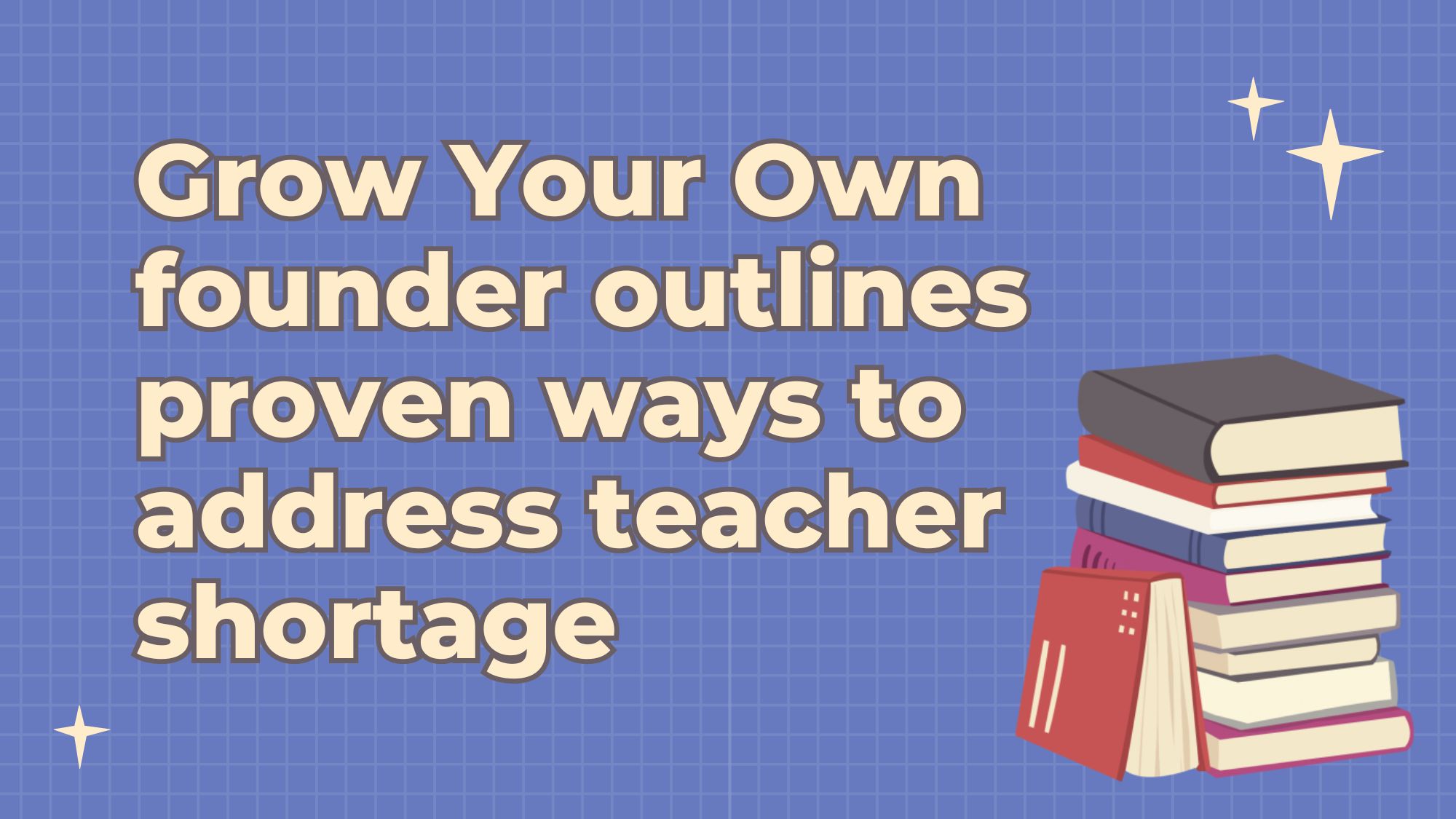National nonprofit promotes becoming a teacher for free and getting paid to do so
Posted: March 21, 2024
“The one thing that has never, ever, ever made sense to me is, why do I pay tuition to a university to provide free labor to a school district and we call that student teaching?”
David Donaldson, founder of the National Center for Grow Your Own, says changing that mindset is critical to addressing teacher shortages and recruitment.
Speaking before educators, administrators, and lawmakers at the Hawaiʻi State Capitol, Donaldson outlined his mission to provide “a clear articulated pathway for an aspiring educator to become a teacher for free, and get paid to do so.”
“There is no doubt in my mind that (financial barriers have) prevented tens, if not hundreds, of thousands of individuals from pursuing their passion or their dream of becoming a teacher,” he said. “They cannot afford to not be paid, take time off of work, quit their job, whatever it may be, to be able to do that.”
With that in mind, the National Center for Grow Your Own, a 501(c)(3) nonprofit organization, supports competitive federal grants to establish teacher apprenticeships that:
- Remove financial barriers with no out-of-pocket costs for candidates,
- Address teacher vacancies with a focus on special education and English as a second language,
- Eliminate the concept of a first-year teacher by requiring one- and two-year minimums of student teaching,
- Increase educator diversity by selecting candidates more diverse than the current workforce, and
- Address education preparation provider (EPP) deserts and quality considerations by encouraging providers to offer services online.
“It’s incredible to see this narrative that nobody wants to be a teacher. It’s a false narrative. Of course we need to address working conditions, pay, benefits, all those things. That goes a long way,” Donaldson said, but “if you remove the financial barriers, it’s amazing to see who will come out and take advantage of these programs.”
The Grow Your Own pilot in Tennessee provided teacher pathways at no cost to more than 670 candidates in 65 districts, or half the state, for less than $10,000 per degree. The organization then applied, and got approved, for a registered apprenticeship for K–12 teachers with the U.S. Department of Labor.
Donaldson said reduced tuition is vital to the program’s financial sustainability. “We’ve learned to go to provosts and presidents and say, ‘Hey, wouldn’t you rather have 50% tuition for 40 students versus the current 100% you have for 10?’ They get it every time,” he said.
Donaldson also advised that school districts:
- Use a mix of funds to cover tuition and salaries.
- Leverage early college and dual-enrollment programs to inspire high school students to teach.
- Guide students through complex financial aid and course requirements.
“We have to have a clear, articulated pathway. Otherwise, we’ll continue to experience the leaky pipeline that we have,” he said. “To get kids interested, you’ve got to keep them and get them all the way through.”
As of December 2023, the Department of Labor said 30 states have a registered apprenticeship program. Four more states adopted programs this year, Donaldson said.
The National Center for Grow Your Own also leads the National Registered Apprenticeship in Teaching Network with 38 participating states, including Hawaiʻi.

From left: Assistant superintendent Sean Bacon, NEA regional director Melissa Case, HSTA vice president Logan Okita, HSTA teacher lobbyist Laverne Moore, HTSB executive director Felicia Villalobos, Grown Your Own founder David Donaldson, HSTA executive director Ann Mahi, Nānākuli Elementary special education teacher Maria Manandic, HSTA deputy executive director Andrea Eshelman, HSTA instruction and professional development specialist Diane Gibson, Nānākuli Elementary special education teacher David DeMotto, HTSB Licensing Specialist Mitzie Higa
Hawaiʻi’s Grow Our Own offers success stories
Donaldson’s visit was sponsored by the Hawaiʻi State Teachers Association, the Hawaiʻi Teacher Standards Board, and the state Department of Labor and Industrial Relations.
Senate Vice President Michelle Kidani, who chairs the Senate Education Committee, hosted the event as an opportunity to collectively address “the pressing issue of the teacher shortage in all of our schools.”
Kidani pointed to Leeward Community College’s Grow Our Own initiative, which launched in 2017 to address Hawaiʻi’s shortage of special education teachers. It created a supportive learning opportunity for educational assistants in Nānākuli-Waiʻanae Complex schools to become special education teachers.
Grow Our Own graduate Maria Manandic spent six years in the program while working as a Parent-Community Networking Center facilitator at Nānākuli Elementary.
“Classes were offered after work hours and the professors came to Nānākuli Elementary School to instruct. This made it convenient for us, for a parent, to continue with the program” while juggling work and family commitments, she explained.
Now a special education teacher at the school, Manandic said, “I truly enjoy working with my students who have learning challenges and being able to help and support them to reach their goals.
“These are my students, my school, and my community where I can really make a difference now that I am a teacher,” she said.
Fellow program graduate David DeMotto started as a substitute teacher in West Oʻahu.
“I always wanted to be a full-time teacher, but I didn’t have the time, much less the financial means, to stop working and return to school,” he said. “I also found myself hesitating because of the challenges that I had anticipated as well as the fear of failing.”
DeMotto spent four years in Grow Our Own, pursuing higher education while working full time and caring for his children. In spring 2023, he graduated with a bachelor’s degree in special education and now teaches at Nānākuli Elementary.
“Programs such as this need to continue because they allow individuals to pursue a career in education, providing tuition, support, and work-accommodating schedules,” DeMotto said.
“If you continue to invest in and support such initiatives like the Grow Our Own program, you will be helping to address Hawaiʻi’s teacher shortage, promote equity among and empower local residents, like me, who genuinely want to contribute to our children’s education,” he said.
Grow Our Own was conducted in partnership with the state Department of Education and INPEACE, a nonprofit dedicated to Native Hawaiian education.

